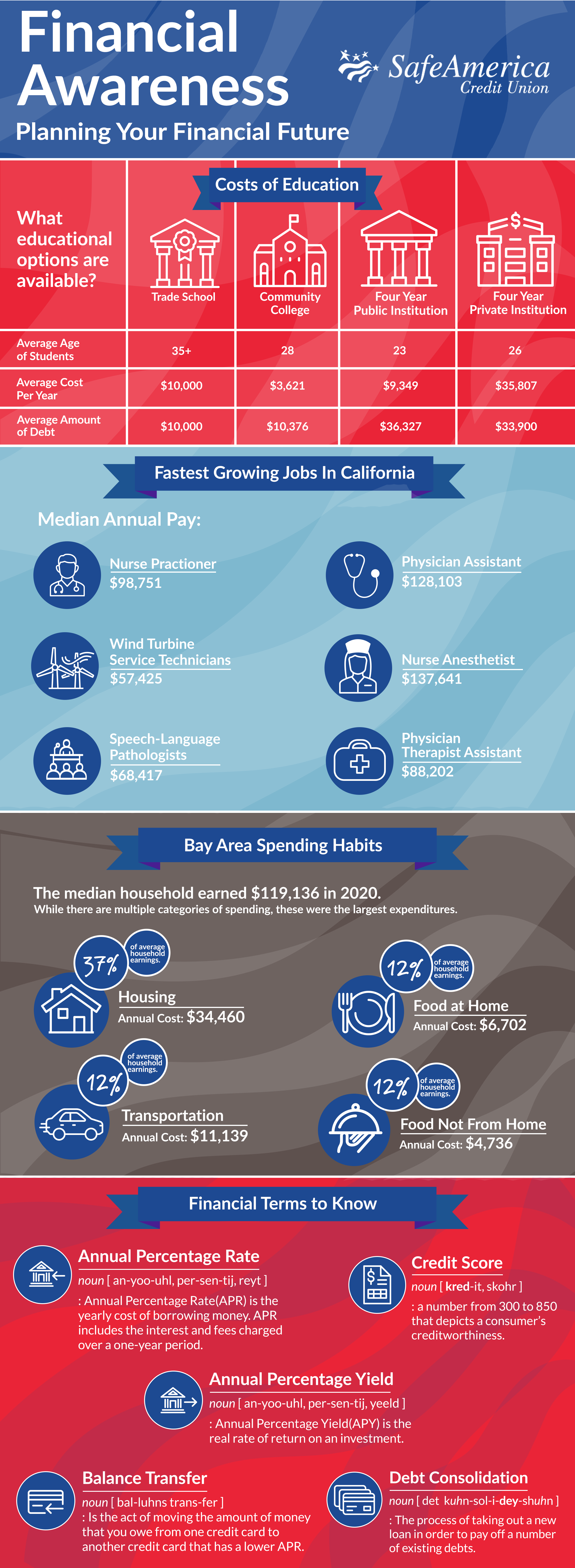September is Life Insurance Awareness Month and if we've learned anything from these past few years, it's that life is unpredictable. At SafeAmerica Credit Union, our hope is to bring awareness and encourage you to learn more about Life Insurance and why it's so important to have.
A Member Benefit for You!
We strive to offer our members the best access to many products and services, such as Life Insurance. We’ve partnered with TruStage to provide you with easy and affordable access to Auto and Life insurance.
As a member of SafeAmerica Credit Union, Trustage® will work with you to select a policy that's right for your budget, with ongoing support and no hassle.
Trustage Life Insurance® can help give you peace of mind today and provide an income-tax free cash benefit for your family. It can help pay expenses you might leave behind such as funeral costs, mortgage payments or unpaid debts. Trustage helps make it easy to compare insurance and explore options you can afford—so you can make a good decision today for your family.
Term Life Insurance
Term Life Insurance will cover you for the length of your policy. As long as your premiums are paid, you will be covered.
Whole Life Insurance
With Whole Life Insurance, the rate you initially pay would be locked-in for the entire duration of your policy. Even if health conditions change and your premiums are paid, your coverage will never be cancelled.
Guaranteed Acceptance
Whole Life Insurance
Guaranteed Acceptance Whole Life is a policy which does not turn down people for their health. As long as premiums are made, coverage will never decrease or be cancelled.
Learn more about Guaranteed Acceptance
Whole Life Insurance »
You can also learn more about Life Insurance by visiting the Trustage website. They offer a variety of quick-read articles to help you make an informed decision.
Get Started Today
Trustage® can help you get coverage that fits your needs and budget. We designed it to be easy to:
- Compare life insurance options
- See instant quotes based on your budget
- Apply online or over the phone
Don't wait, get an instant online quote today. Or call 1-800-814-2914 and talk to a licensed agent.
Why Trustage®
Since 1935 Trustage has been assisting millions of people by helping protect the financial future of their loved ones with insurance policies designed to be affordable.
Trustage works with thousands of credit unions across the United States helping families prepare for the future and help secure the financial stability of millions of credit union members.
TruStage® is underwritten by CMFG Life Insurance Company, a well-known credit union member insurance provider. For more than 80 years, CMFG Life has earned the trust of members nationwide and is rated “A” (Excellent) by A.M. Best, an independent national organization that rates insurers’ financial strength and performance. “A” is the third-highest of 16 ratings, as of March 2021. Join more than 20 million members who rely on TruStage.
TruStage® Life Insurance is offered by TruStage Insurance Agency, LLC and issued by CMFG Life Insurance Company, P.O. Box 61, Waverly IA 50677-0061. The insurance offered is not a deposit and is not federally insured or guaranteed by your credit union. Products and features may vary by state.
© TruStage Insurance Agency
GEN-2943854.2




